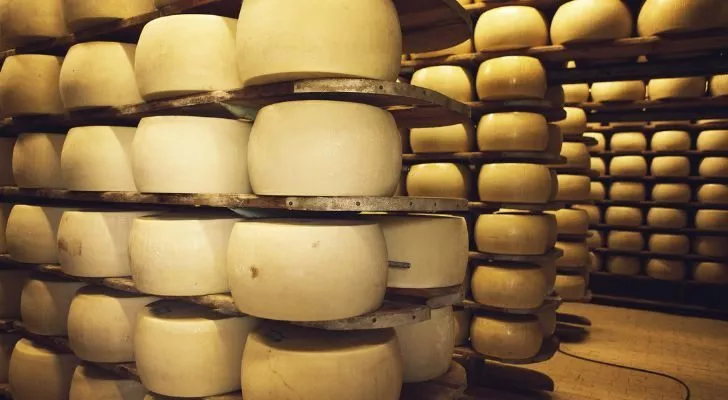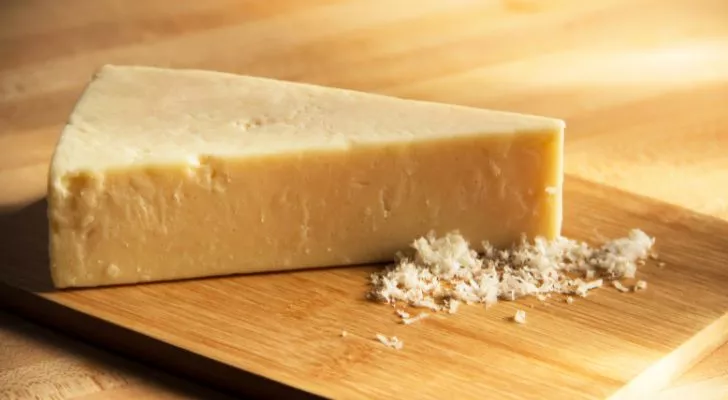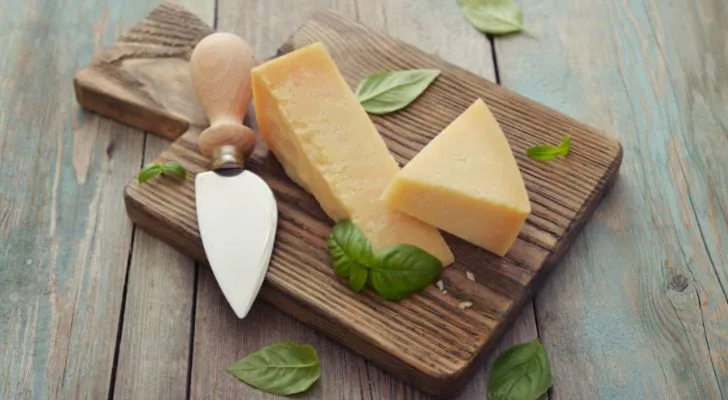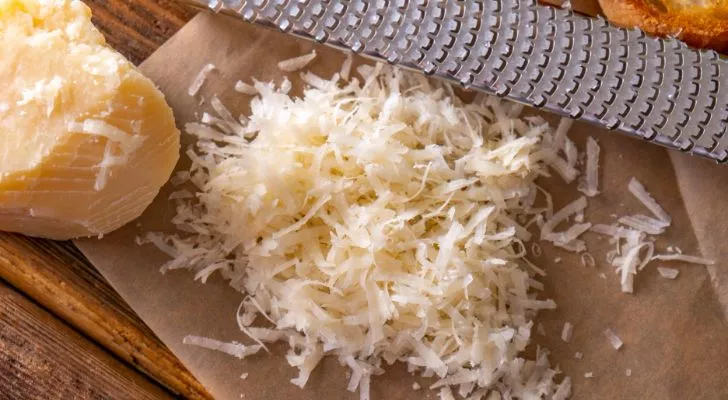Italians have been producing Parmesan cheese for over 700 years, making it a legendary cheese in the culinary world.
Parmesan cheese is a delicious hard cheese that can elevate the taste of any dish.
Here are some fascinating facts about this cheese:
Parmesan and Parmigiano Reggiano are not the same thing.

All Parmigiano Reggiano cheeses are Parmesan cheeses, but not all Parmesan cheeses are Parmigiano Reggiano.
Only cheeses made in certain regions of Italy can be called Parmigiano Reggiano, while Parmesan refers to any granulated cheese of the same style.
The EU protects both Parmesan and Parmigiano Reggiano.

The European Union protects the names of both Parmesan and Parmigiano Reggiano, ensuring that only cheeses made in certain regions of Italy can use these names.
Parmesan made outside of Italy is not regulated.

While there are regulations in place for Parmesan and Parmigiano Reggiano made in Italy, there are no regulations for cheeses made outside of Italy that use the name Parmesan.
Parmigiano Reggiano is made in a specific way.

The cows that produce the milk for Parmigiano Reggiano must eat locally grown feed, and the cheese must be aged for at least 12 months and branded with a code for traceability.
Parmesan can be aged for up to 90 months.

Parmesan can be aged for a maximum of 90 months, with the taste and texture changing as it ages.
Parmesan has been made for over 700 years.

Legend has it that Parmigiano Reggiano was first made in Reggio-Emilia, Italy, over 700 years ago.
The origins of Parmesan cheese can be traced back to the 13th century, as documented historical records describe a cheese that closely resembles the one we enjoy today. Although there were various types of Parmesan cheese popular during that time, it is possible that Italians have been consuming Parmesan cheese even longer than documented.
It may come as a surprise, but Parmesan cheese is actually quite nutritious. Just 30 grams of the cheese provides 50% of the recommended daily intake of calcium, as well as other vitamins and minerals like vitamin A, vitamin D, iron, potassium, Thiamine, and Riboflavin.
Don’t throw away the hard crusts from your Parmesan cheese blocks! They can be used to add incredible flavor to stocks, soups, stews, or even infused in olive oil.
If you are lactose intolerant, you can still enjoy Parmesan cheese. The lactose in “real” Parmesan is converted into lactic acid during the cheesemaking process, making it safe for those who cannot tolerate lactose to consume.
Parmesan cheese is graded into three categories based on physical defects and compliance with specified requirements. A first-grade wheel is defect-free, while medium-grade wheels may have some defects in their rind or structure. If a wheel has too many flaws, it is sold without its former name as a hard Italian Parmesan-style cheese.
It is easy to tell the difference between real Italian Parmigiano Reggiano and imitation Parmesan. A small amount of authentic Parmesan cheese can elevate a simple pasta dish to a whole new level, while imitation Parmesan cannot compare. It is no wonder Italy seeks to protect the authenticity of Parmesan cheese.
FAQ
1. What is Parmesan cheese?
Parmesan cheese, also known as Parmigiano-Reggiano, is a hard, granular cheese made from cow’s milk. It originated in Italy and is named after the regions of Parma and Reggio Emilia where it is produced.
2. How is Parmesan cheese made?
Parmesan cheese is made by heating cow’s milk, adding rennet to coagulate the milk, and then breaking the curd into small pieces. The curd is then cooked and pressed into molds, where it is left to age for at least 12 months.
3. What makes Parmesan cheese so special?
Parmesan cheese is known for its rich, nutty flavor and granular texture. It is also high in protein and low in fat, making it a healthy addition to any diet. Additionally, Parmesan cheese is a versatile ingredient that can be used in a variety of dishes, from pasta to salads to soups.
4. What are the nutritional benefits of Parmesan cheese?
Parmesan cheese is a good source of calcium, which is important for strong bones and teeth. It is also high in protein, which helps to build and repair muscle tissue. Additionally, Parmesan cheese is low in fat and calories, making it a healthy addition to any diet.
5. How should I store Parmesan cheese?
Parmesan cheese should be stored in the refrigerator in airtight packaging. It can also be stored in the freezer for up to 6 months. When using Parmesan cheese, it is best to grate it fresh rather than using pre-grated cheese, as the flavor is more intense.
6. Is Parmesan cheese suitable for vegetarians?
No, Parmesan cheese is not suitable for vegetarians, as it is made with animal rennet, which is extracted from the stomachs of calves.
7. Can Parmesan cheese be used in cooking?
Yes, Parmesan cheese is a versatile ingredient that can be used in a variety of dishes, from pasta to salads to soups. It can be grated, shaved, or melted to add flavor and texture to your favorite recipes.
8. How long does Parmesan cheese last?
Parmesan cheese can last for up to 6 months in the refrigerator and up to 2 years in the freezer. However, it is best to use it within a few weeks of opening to ensure optimal freshness.
9. What are some popular dishes that use Parmesan cheese?
Some popular dishes that use Parmesan cheese include pasta dishes such as spaghetti carbonara and fettuccine Alfredo, as well as salads such as Caesar salad and caprese salad. Parmesan cheese is also commonly used in soups and as a topping for pizza and other Italian dishes.

Zayn Anderson is a prolific writer with a passion for uncovering the world’s intriguing facts. Armed with an insatiable curiosity, he delves into various subjects, from history and science to nature and technology.
